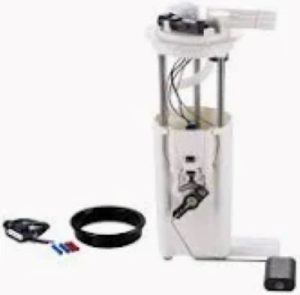Fuel contamination is a major cause of failure in Fuel Pumps. Contaminated fuel-whether through dirt, water, or other forms of debris-can clog the fuel filter or even cause damage to the internal parts of the Fuel Pump, resulting in poor performance or complete failure. According to the study carried out by the Automotive Research Institute, almost 15% of all Fuel Pump failures are directly linked to contaminated fuel. Water is the most prevalent contaminant. Up to 30% of fuel contamination cases include moisture that has entered the fuel tank through condensation or at the time of refueling from unreliable stations.
For instance, a report by Fuel Quality News in 2019 indicated how a nationwide fuel contamination incident in the UK affected thousands of vehicles, with contaminated diesel causing pumps to fail prematurely. The incident was traced to a batch of fuel that had been stored improperly, allowing water to accumulate in the fuel. This caused numerous Fuel Pump failures in affected vehicles, with repair costs running into the millions of dollars.
Basically, fuel contamination can cause failures due to a number of reasons: Since the fuel system consists of tiny passages, the entrance of particles of dirt or rust clogs them and obstructs fuel flow, which reduces the pump's efficiency. This means that over time, increased wear on the pump is created, and it can lead to its failure. Besides that, the water in the fuel system will cause corrosion in the Fuel Pump itself (especially on older models) because the moisture combined with metal components starts internal rust. According to the National Automotive Service Task Force, 40% of Fuel Pump failures in vehicles over 100,000 miles are caused by rust and corrosion brought about by water contamination.

An example from Ford Motor Company in 2020 quite clearly explains how fuel contamination works to damage the Fuel Pump: a series of faulty pumps was traced to a lot of gasoline that contained excess water. These pumps started failing in a significant quantity of Ford F-150 trucks, leading to complete engine stalls and poor engine performance. Ford had to issue a service bulletin out to its dealerships; this called for the inspection of fuel systems in affected vehicles for replacement.
According to automotive expert James McClure, head of Fuel Systems Research at Delphi Technologies, "Contaminated fuel is a silent killer for fuel systems. It's essential to use high-quality fuel and regularly maintain the fuel system to avoid costly repairs." Likewise, AAA warns that filling up at low-quality stations-especially those that have not been well-maintained or have old storage tanks-can increase the likelihood of fuel contamination. According to studies, 15% of drivers have reported poor performance, but few realized it was contamination of fuel that was the actual cause.
Contamination leading to failure results in costly repairs: In addition, the repair costs will be between $500 to $2,500 in an overhaul of a fuel system, depending on your vehicle's make and model, while the replacement fuel pump alone costs in a range from $100 up to $1,200. Sometimes, in case the fuel system parts cannot cope with such aggressive external treatment, it might result in their complete replacement-what increases the repair costs many times over.
These recommendations include purchase of fuel only from reputable stations, regular substitution of fuel filters, and avoiding overfilling the gas tank to avoid introducing moisture. Kemso Fuel Pumps are designed to handle such conditions, and quality assurance is given to minimize any chances of failure due to contamination. Regular maintenance and clean, good-quality fuel are crucial in ensuring a longer life for a Fuel Pump and avoiding very expensive repairs.